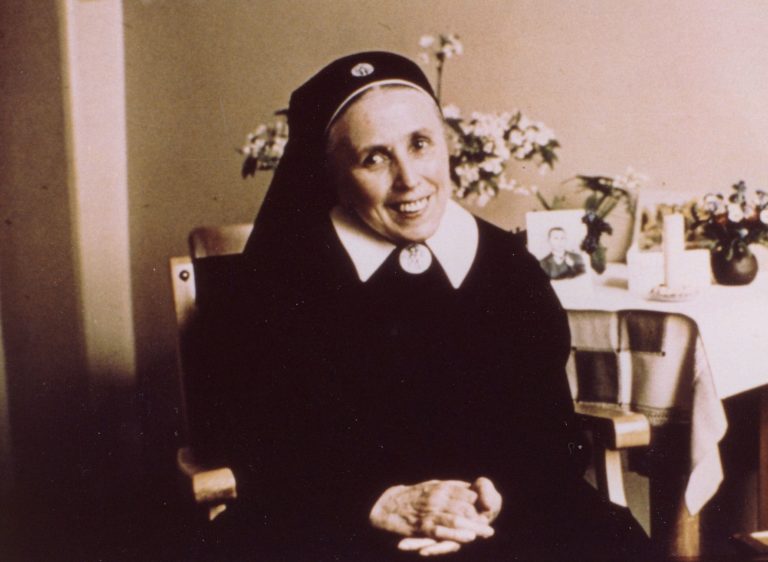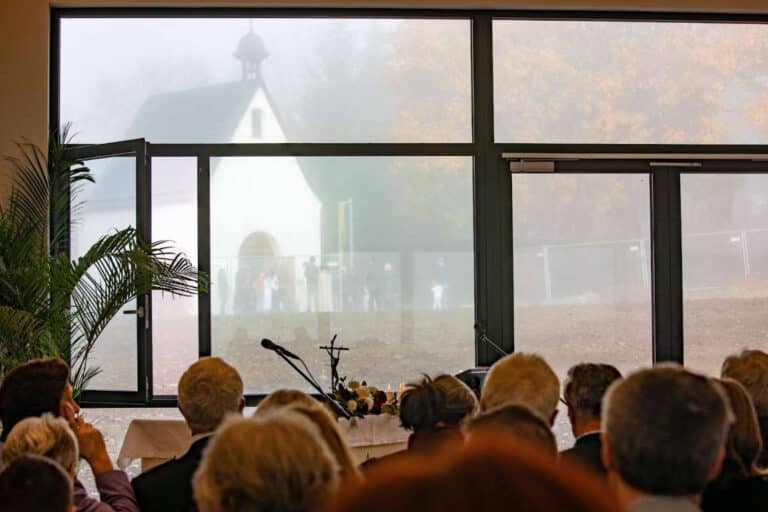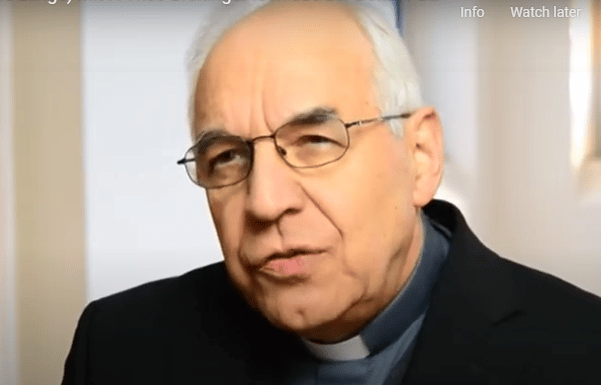On May 16, 2022, Dr. Alicja Kostka, a member of the Schoenstatt Women’s Federation, was appointed by the postulator general of the Pallottines as vice-postulator of Joseph Engling’s beatification process in Rome. Thus, she has taken over from Father Joachim Schmiedl, who died in December 2021 and who accompanied the process for the last 20 years. In February 2021, the Dicastery for the Causes of Saints raised new questions, the clarification of which is a prerequisite for the process to continue successfully. Answering these questions is one of the first tasks of the new vice-postulator. Schoenstatt.de had the opportunity to speak with Dr. Kostka.
Dr. Kostka, you have been connected with Joseph Engling for years…
Yes, I heard about him for the first time as a student of theology at the Catholic University of Lublin in southern Poland, when I encountered the Schoenstatt Movement there. I was especially touched by the fact that Joseph Engling is from my homeland, Warmia, formerly East Prussia. The interest in my compatriot grew quickly. Gradually this became a task: in 1997 I took over responsibility for the house where he was born in Prosity, Poland. This led me to a more intensive examination of his life, as I increasingly saw the need to make him known in the vicinity of his former place of residence, but also in the international Schoenstatt Movement, or to make his mission more deeply known specially today. Workshops, pilgrimages, and publications followed, and my life became more and more connected with Joseph.
The process for Joseph Engling’s beatification has been underway for some time now. What have been the stages of this process so far?
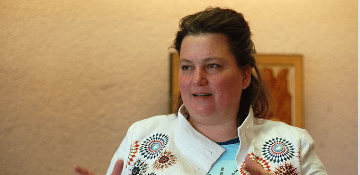
The process was opened on October 4, 1952, in Trier, shortly after the founder of Schoenstatt had to go into exile in Milwaukee. After the separation of the Schoenstatt Work from the Pallottines in 1964, the process was suspended at first until it was resumed in 2000 thanks to an agreement between the Pallottines and the Schoenstatt Movement. The responsibility lies with the Pallottine community since Joseph was a student at the Pallottine house of studies in Vallendar. In the years 2005 to 2008, a complementary process was carried out in the Diocese of Trier in order to establish his reputation as a saint, which was sealed with a Dekreto di Validità on April 2, 2009. Since 2013, the process has been in the “Roman phase”. Both historical and theological questions have been clarified by the relevant commissions. The question of the candidate’s status as a soldier at the time of his death must be examined individually and specifically for each case. For a long time, this question was an obstacle that could not be overcome. In the meantime, however, this question is no longer a fundamental obstacle to beatification. In the spring of 2021, the process was already close to the conclusion of the first phase, that is, before the attribution of the title: Venerable, Servant of God. Therefore, the new questions raised in the spring of 2021 are quite surprising.
What questions has the dicastery raised again for the beatification?
The questions relate to Joseph’s handling of the difficulties of his character. Among them, his struggle with mood swings. Engling was prone to melancholy and often had to rouse himself from inertia. The cardinals want to clarify whether he took up the struggle against this weakness of character for religious reasons or for human, purely willful reasons, even because of a certain obstinacy.
Secondly, the cardinals wonder whether a personality with a tendency to “light addictions” (among other things, his tendency to play cards) can be presented to young people as a role model.
Moreover, it is about the fulfillment of his duties within the framework of military service. He was asked whether he had indeed always performed his duties as a soldier and followed orders. The fact that – it seems – he did not always pay attention to his appearance is the source of the doubts of those making judgments. And finally, it is still not possible to determine clearly whether or not Joseph Engling killed anyone in the course of his military service. All these questions culminate in the general question of whether his person could have any relevance for today’s youth.
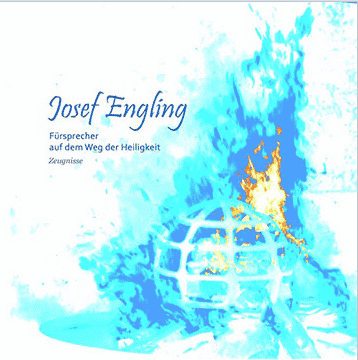
How are these matters assessed? Can they be answered in a satisfactory way? And what observations do you have on this questioning of Joseph Engling’s person?
It seems to me that we should see these questions as an opportunity to discover Joseph Engling more deeply and also anew. Perhaps it is precisely the youth of today who are waiting for such a role model. For me, anyway, the questions are an excellent opportunity to go deeper into this co-founder of Schoenstatt. We may have to take a look at him again. Already a first consideration of the questions convinced me that his life is an example of how one can face up to one’s own character flaws and – in the covenant of love with Mary – finally overcome them. The conscious and religiously motivated development of the personality by the hand of God and the Blessed Mother, which can be observed in his life, can be a valuable example especially with his struggles visible to young people. He was motivated by love, especially love for Mary. From this love he had the strength to first admit his weaknesses, then to face them and finally to overcome them. Many Schoenstatters and friends of Joseph Engling are familiar with the key word “Remonville”. Here Joseph shows how he can rise from defeat to start anew, in an extremely unfavorable environment and in the difficult circumstances of war. This example became a source of help for many people of different generations. Today’s young people, in particular (but not only them), face various experiences and threats of addiction.
Even in the question of how he copes with his mood swings, which he deals with quite consciously, it is evident that Joseph Engling found an original way in the sense of self-education to consciously challenge these mood changes, and this at a very young age. He did it, just like he overcame other difficulties, in intimate union with the Virgin Mary, trusting in her help, but much more for her and for the emerging Schoenstatt Work as a new spiritual community, as a divine awakening that he was able to experience with all his senses.
And the question, did he ever shoot and kill?
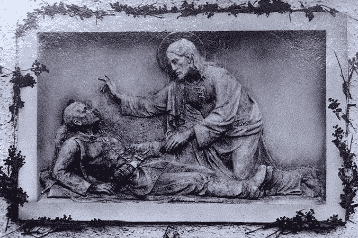
This question can only be answered from the totality of his life and from what he himself left written. He did his military service consciously as a member of the Marian Congregation. He prepared himself and fellow members of the Congregation inwardly for this moment. He wanted to consciously use this challenging, even extremely dangerous time to grow in holiness. That was his goal. He never backed down from this, on the contrary. He constantly evaluated himself and measured himself against his goal. This was his main horizon. And, moreover, it was not an end in itself. For him it was the way to help build Schoenstatt. In his diaries we can read how the first groups came about. In his notes there is no mention of whether he ever deliberately shot a person. For someone who records other experiences in such detail and in such a “delicate” way in his diary, the absence of any indication of moral involvement in the killing of a human being, even an enemy, is itself an indication, a confirmation.
In my opinion, this question can only be answered from the totality of his attitude, his spiritual practice, his statements, and those of contemporary witnesses. Here, as already indicated, his responsible conscience must guide the answer. Joseph voluntarily asked penance from his spiritual father, Joseph Kentenich, for minor faults. He went to confession frequently and, whenever he could, he received Holy Communion, which was “very holy” for him. All his life he tried to live at a very high spiritual level. In this context, it is hard to imagine that he would never have recorded anything about an experience like the killing of a human being. When he writes about taking the dead or wounded off the battlefield and doing so voluntarily, he does so with a high religious and human sensitivity, of great quality indeed. That should also be taken into account in this question.
And how do you see the overall question of whether he can be a role model for youth?
For me, there are three key points here, which I would like to label as follows: “growth in closeness to God“; “mysticism in everyday life” and ” a Christian of the future“.
It is precisely in the last months of his life that we observe in Joseph Engling a palpable union with God. On June 3, 1918, he offered his life to the Blessed Mother for the objectives she had in mind for Schoenstatt. In the time that followed he consciously lived out this consecration. In the cruel circumstances of war, he shows us how, as a Christian, one can maintain, even develop one’s religious and spiritual life in extreme military circumstances. The war in Ukraine provides us with a rough illustration of his daily life. A young man who wants to be a priest, a writer, and a missionary, becomes a soldier overnight – because the war breaks out – without ever having intended it. It is admirable how he faces these circumstances of life that he has not chosen voluntarily.
He can be a model in many ways: in the coherent development of his personality, in the structuring of his day even in adverse circumstances, in the creativity and coherence of his missionary commitment to the faith, …. He can be a model for young people who are committed to building spiritual communities, for people who want to get involved in building up the local Church and also for people who want to assume or have assumed leadership responsibilities.
His love for Mary went a long way: this too must be explored anew. In this, the unity with the love of Christ, which distinguished his love for Mary, is particularly evident. I would also see in Joseph Engling an example of a very well-connected person in the sense of deep bonds: with his family, with his parents and siblings, with his colleagues and in his responsibility for them; with his teachers and with his spiritual father, who was his guide, leading him in freedom.
I have the impression that we face the challenge of taking a new look at Joseph Engling. And perhaps the questions posed are – from a providential point of view – an incentive to do so.
Facts about Dr. Alicja Kostka
– Member of the Schoenstatt Women’s Federation.
– 2006: Doctorate in Moral Theology at the Catholic University of Lublin on the image of a woman in Father Joseph Kentenich.
– 2008-2020: Professor at St. Lambert Seminary, Lantershofen.
– 2019: Studies for postulator at the Pontificia Università Urbaniana, Vatican.
– 2022: Archival studies at the Vatican School of Archivistics, Paleography and Diplomacy.
– Since 2020: Member of the International Research Group on the Kentenich Cause.
– Consultant on the advisory board of the beatification process of Franz Reinisch.

